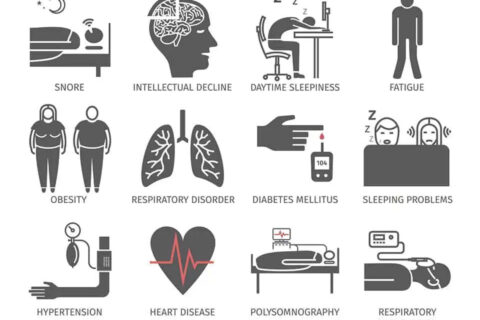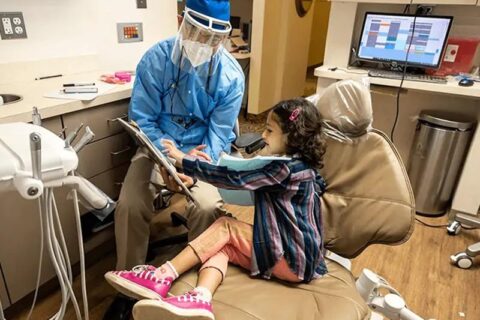Breathing / Medical Disorders That May Be Mistaken for Sleep Apnea

Sleep apnea is somewhat underdiagnosed. However, that doesn’t mean that most people who struggle with poor sleep or sleep apnea-related symptoms can assume they have the condition. In some cases, symptoms that seem like sleep apnea may actually be related to other disorders.
Let’s look at five medical disorders that may be mistaken for sleep apnea.
COPD
Chronic Obstructive Pulmonary Disease makes it incredibly difficult to breathe naturally for people who struggle with this condition. Much of the time, symptoms of COPD that take effect at night can mimic sleep apnea. For example, shortness of breath, poor sleep quality, and frequent headaches are common in both conditions.
Asthma
Asthma can cause shortness of breath that can be mistaken for sleep apnea when symptoms occur at night. During the onset of an asthma attack and during a bout of sleep apnea, an individual might feel the need to gasp for air. People with both conditions might snore, struggle to get enough sleep, and deal with daytime sleepiness.
Thyroid Disorders
Thyroid disorders, like sleep apnea, can greatly affect a person’s sleep quality. Both hypothyroidism and sleep apnea can cause individuals to feel tired during the day. Sleep apnea and hyperthyroidism can make it difficult to stay asleep throughout the night, which may also lead to people with either disorder having a harder time concentrating on tasks during the day.
Chronic Fatigue Syndrome
Chronic Fatigue Syndrome isn’t entirely understood by the scientific community, but the symptoms of this disorder and sleep apnea tend to overlap somewhat. CFS causes patients with the disorder to feel incredibly tired and/or weak throughout the day, to where no amount of sleep seems to bring relief. Sleep apnea brings about the same symptom due to the fact that OSA manifests during sleep hours.
Sinusitis
Because sinusitis causes inflammation throughout the human sinus cavity, this condition can mimic sleep apnea. Both conditions can cause snoring, gasping for air at night, breathing interruptions, and poor sleep quality.
Lupus
Lupus is an autoimmune condition that affects an individual’s sleep in many of the same ways sleep apnea does. During a lupus flare up, patients can experience significant fatigue that affects daily life. Due to discomfort and general uneasiness, lupus can also cause sleep disturbances, which can lead to daytime headaches and trouble focusing.
If you’re experiencing symptoms that suggest you may have sleep apnea, reach out to a medical professional. An examination conducted by a dental provider who’s experienced in diagnosing breathing disorders will be able to shed light on the nature of your condition.


